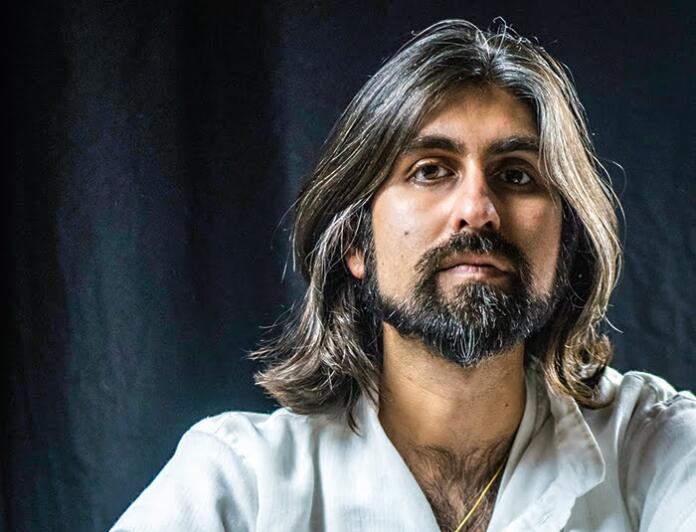
From the first descendants of indentureship who settled across Antillean islands, a rich community has emerged with a distinctive artistic expression all its own. This has become most pronounced in the realm of performance. Indo-Caribbean artists have hybridized and creolized traditional folk dance and music, fusing the Old World and new. Today, Indo-Caribbean artists living in America give voice to the diaspora, bringing visibility to their community and advancing Caribbean culture across the nation’s stages.
Denyse Baboolal
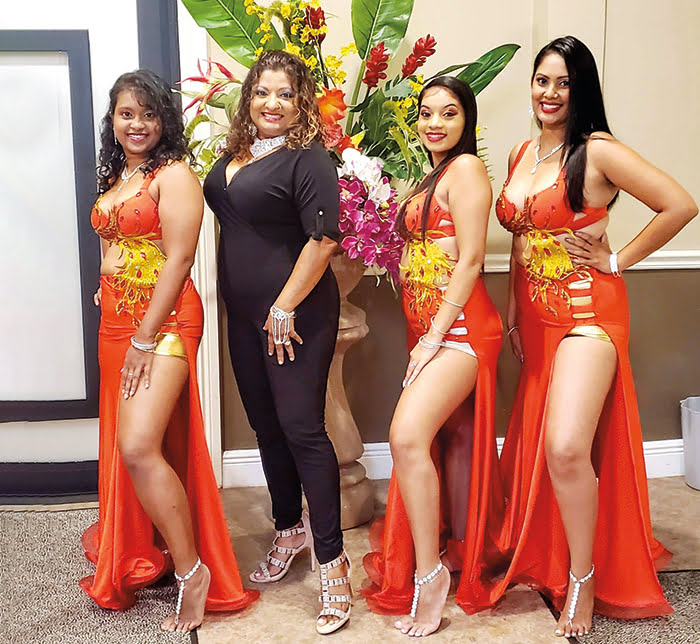
Culture and community are intimately intertwined for Trinidadian native Denyse Baboolal, the proud founder and director of Jayadevi Arts Inc.—the first Indo-Caribbean arts nonprofit in the southern United States. Based in South Florida, Baboolal has become an essential advocate for nurturing Indo-Caribbean culture in America. For more than two decades, she has performed and choreographed both Indian and Indo-Caribbean dance forms across the country.
“We try to show them that India has Bollywood, but in the Caribbean, we have chutney,” Baboolal said of the unique Caribbean style informed by Latin and African influences. “At shows, we say, ‘This is our version of Bollywood,’ so they see the difference of where our roots started and where we are today.”
What differentiates Jayadevi Arts from other Indo-Caribbean cultural groups is their celebration of art forms from across the wider Caribbean diaspora. Every year at the Phagwah spring festival celebrations, also known as Holi, Baboolal said she showcases “not only Trinidad and Guyana, but also Jamaica, Suriname, and Belize. We represent Indians from all segments of the Caribbean.”
Jayadevi Arts also regularly performs at political events throughout South Florida. In addition to carrying the torch to the next generation, Baboolal hopes this visibility underscores the community as a distinct group with specific needs. “We want to be able to go into the political arena to say, ‘Hello, we’re Indo-Caribbean.’ When we tick on ‘Other’ and we write ‘Indo-Caribbean’ on the Census, this is who we are. And we need to be recognized.”
Mohamed A. Amin
Caribbean bacchanal and drag performance fuse to magical effect for pioneering New York-based dancer and choreographer, Mohamed A. Amin. Performing both under his stage name International Dancer Zaman and his drag persona Sundari, Indian Goddess, the proudly gay, Muslim and Indo-Guyanese star has become an icon of nightlife in Queens, N.Y., and the LGBTQ Caribbean community.
The drag persona Sundari is a regular star attraction during the city’s pride celebrations, dancing at the historic Stonewall Inn and the Queens Pride Parade and Multicultural Festival. In 2018, she made history becoming the first drag queen to perform on the main stage at the 30th Annual Queens Phagwah Parade, joining the acclaimed Tarang Dance Group. “It was a historic event for not only our LGBTQ community, but for the Indo-Caribbean diaspora as well,” Amin said about the landmark performance.
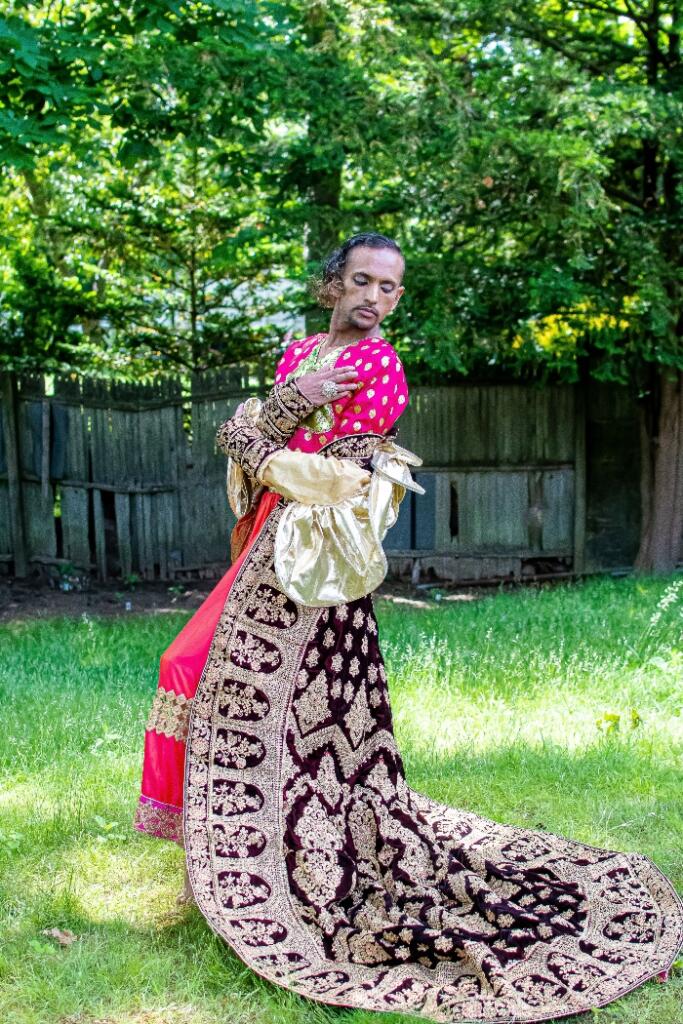
When dancing to Bollywood and soca hits as Sundari, Amin is usually bedecked in jewelry and lush traditional dress. Beyond the glitz and glam, however, this alter ego has a deeper purpose for Amin—proving that LGBTQ identities and Caribbean culture are not mutually exclusive and that they can be synergetic. “Our Indo-Caribbean community has a long history of LGBTQ identities infused in our culture,” Amin said. “Over the past 10 years, I have used my identity via dance to remind our community of this history that has been forgotten, that became socially and culturally unacceptable.”
He’s also a volunteer of the Queens-based Caribbean Equality Project, an LGBTQ advocacy group founded by his brother, Mohamed Q. The organization’s mission was inspired by Amin’s own survivor experience from LGBTQ violence. “Though LGBTQ artists’ visibility was once slim to none, setting a gender equality standard in my artistic practice has created a wave of transformation within our community in Queens.”
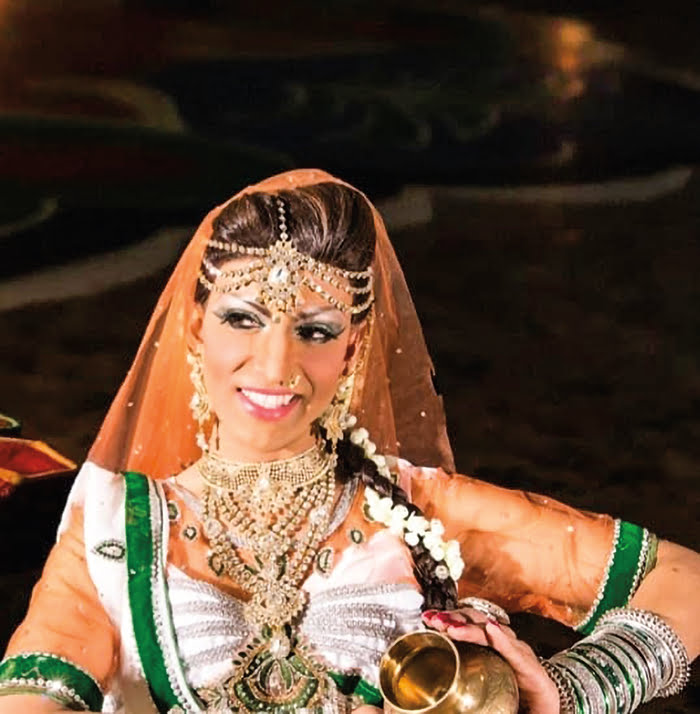
Going on two decades as a performer, Amin remains committed to his art’s empowering impact. “Whether it’s at a senior home, rally, cultural community event or at a wedding, it’s a great blessing to share our rich Indo-Caribbean culture with others.”
Levi Ali
Connecticut-based drummer Levi Ali is on a mission. The Trinidadian-American percussionist, a master at Caribbean tassa and Indian-style tabla, is spreading the gospel of the drums. With a father who toured as a reggae bass player, music is in his blood.
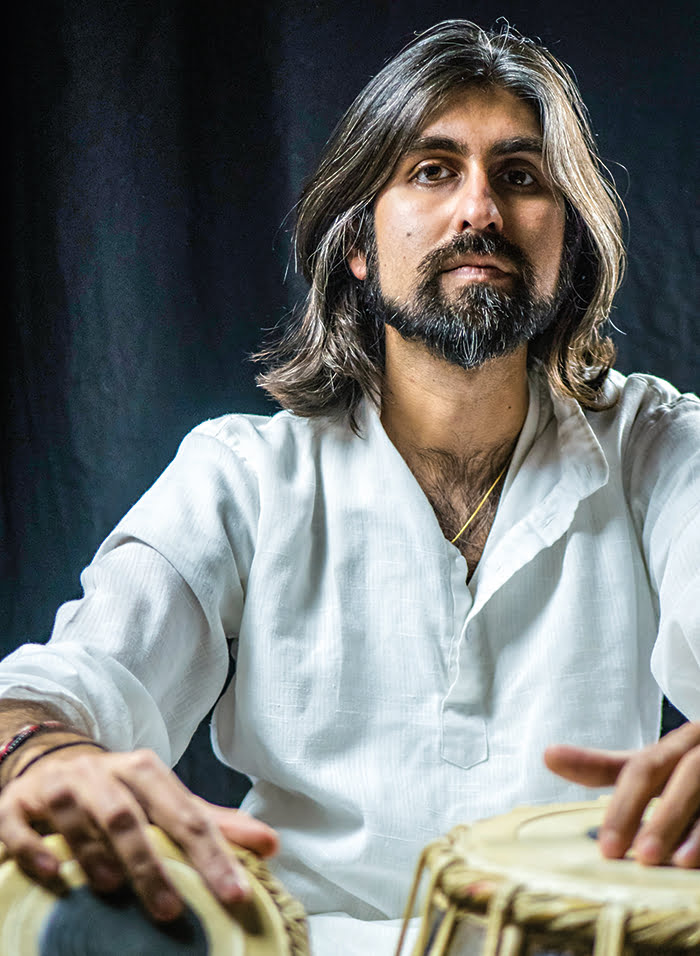
Ali’s forays into drumming began with heavy metal and punk rock bands. He first became interested in the Arab hand drum, the doumbek, at a belly-dancing performance in his hometown of Tucson, Ariz. After moving to Boston, Mass., as an adult, he began to study the ubiquitous South Asian tabla drum. “My friend’s dad had to personally bring me the tablas from India,” recalled the musician, “because when he tried to mail them, the customs officers would cut them open.”
A 2008 trip to Trinidad and Tobago unlocked the power of tassa, the Caribbean Indian snare drum worn around the body. Along all his journeys, both geographical and artistic, tassa holds the most special place in his heart. “What’s cool about Trinis is that we took what we had from India to Trinidad, and that’s blossomed into its own unique art form that I would consider the pinnacle of drumming.”
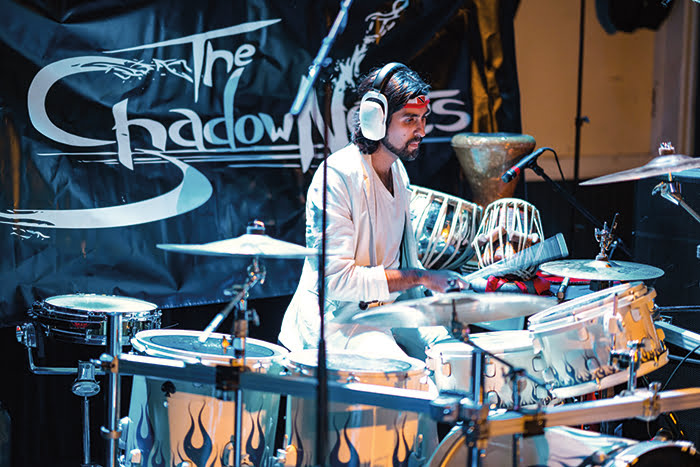
Across the Northeast, Ali now plays among a group of South Asian artists at local gigs and festivals. Outside of Caribbean-oriented events such as carnivals, Ali is generally the only Indo-Caribbean drummer. “It’s a whole culture that’s gone unnoticed,” Ali said. “The subcontinent could learn a lot from us about how to adapt and change culture to fit your new surroundings.”
HASSAN GHANNY is a writer and performer based in Boston. His writing has been featured in The Boston Globe and WBUR.































